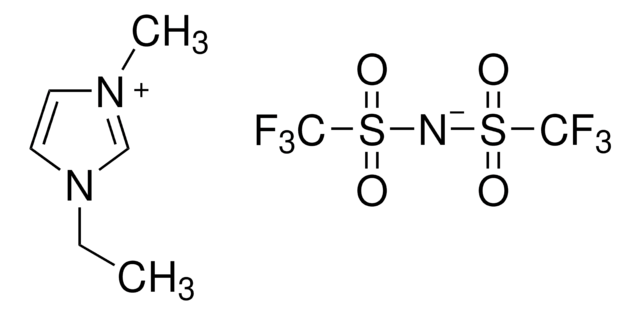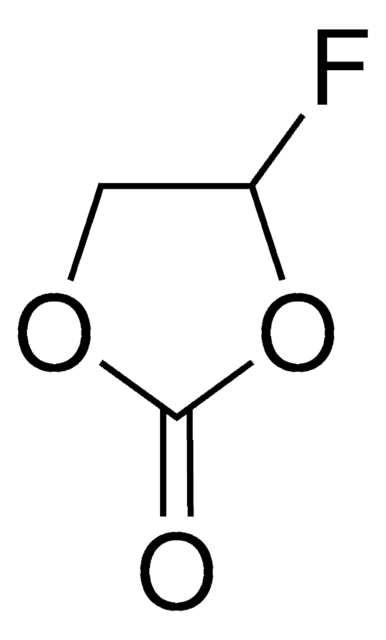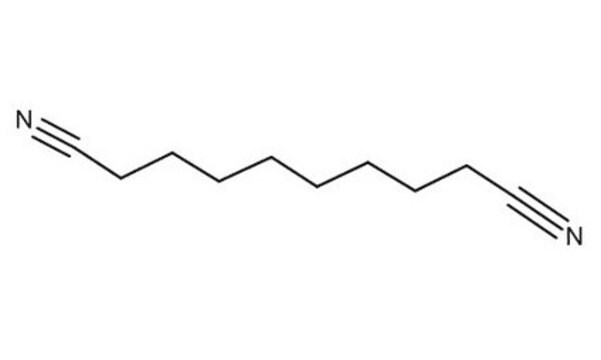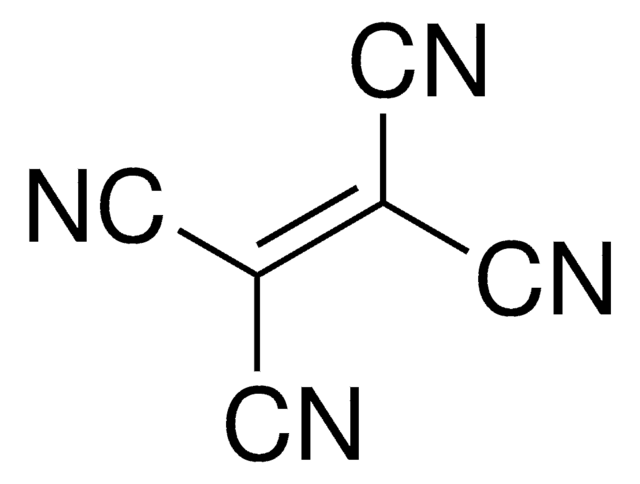130621
Glutaronitrile
99%
Synonym(s):
1,3-Dicyanopropane
About This Item
Recommended Products
Quality Level
Assay
99%
form
liquid
refractive index
n20/D 1.434 (lit.)
bp
285-287 °C (lit.)
mp
−29 °C (lit.)
solubility
H2O: soluble
alcohol: soluble
chloroform: soluble
density
0.995 g/mL at 25 °C (lit.)
functional group
nitrile
SMILES string
N#CCCCC#N
InChI
1S/C5H6N2/c6-4-2-1-3-5-7/h1-3H2
InChI key
ZTOMUSMDRMJOTH-UHFFFAOYSA-N
Looking for similar products? Visit Product Comparison Guide
Related Categories
Application
- An electrolyte additive in high energy/power Li-ion batteries.
- A glutarate ligand source to prepare zinc glutarate (ZnGA) by reacting with zinc perchlorate hexahydrate.
- A reactant to synthesize pentanedithioamide by reacting with Lawesson′s reagent in the presence of boron trifluoride etherate (BF3.OEt2).
Signal Word
Danger
Hazard Statements
Precautionary Statements
Hazard Classifications
Acute Tox. 3 Oral
Storage Class Code
6.1C - Combustible acute toxic Cat.3 / toxic compounds or compounds which causing chronic effects
WGK
WGK 3
Flash Point(F)
233.6 °F - closed cup
Flash Point(C)
112 °C - closed cup
Personal Protective Equipment
Regulatory Listings
Regulatory Listings are mainly provided for chemical products. Only limited information can be provided here for non-chemical products. No entry means none of the components are listed. It is the user’s obligation to ensure the safe and legal use of the product.
PDSCL
Deleterious substance
FSL
Group 4: Flammable liquids
Type 3 petroleums
Hazardous rank III
Water insoluble liquid
JAN Code
130621-VAR:
130621-BULK:
130621-25ML:4548173104492
130621-100ML:4548173104485
Choose from one of the most recent versions:
Already Own This Product?
Find documentation for the products that you have recently purchased in the Document Library.
Customers Also Viewed
Our team of scientists has experience in all areas of research including Life Science, Material Science, Chemical Synthesis, Chromatography, Analytical and many others.
Contact Technical Service














